It takes a specific formula and something unique to nail the coming-of-age, young adult series, something that presently, even the best there is to offer falls short.
When it comes to capturing the college-aged genre, Felicity is the blueprint.
It’s been 25 years since Felicity premiered on the now-defunct network The WB, and the magic of the series and the subsequent impact of it still holds up today.
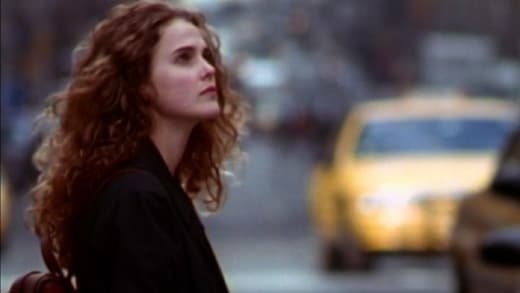
Felicity’s indelible legacy marked the acclaimed J.J. Abrams’ first foray into television, opening the door for other massive hits such as Alias and Lost.
The series also made breakout stars out of Keri Russell, Scott Speedman, Scott Foley, and Greg Grunberg, who have been successful household names since.

In honor of the 25th anniversary, a rewatch of the pilot was warranted, and it’s incredible how much it transports one back to pre-9/11 to perfectly capture the profound introspection, whimsy, and cringe of just entering adulthood.
In hindsight, the series premiere of Felicity borrows from the traditional romcom formula to a tee.
If you didn’t know any better, you’d believe you were tuning into a 45-minute romantic comedy as it hits all the notes and plays with the familiar tropes in such a straightforward way that it feels classic.
Right off the bat, Felicity dates itself, opening with Felicity’s introspective voiceovers that quickly introduce us to Felicity as a character and place us right in her head.
It’s evident within the first moments that we’ll be seeing and experiencing the world of this series through Felicity’s eyes: good, bad, ugly, and, as we often see within the pilot alone, humiliating.

The voiceover work as a storytelling tool is notable right out of the gate. It set a precedent for series such as Veronica Mars, The Vampire Diaries, and Grey’s Anatomy years later.
In this instance, Felicity isn’t just vocalizing her thoughts openly. We learn that she’s audio recording herself. She bares her soul, all of her secrets, and everything on her mind to an offscreen presence, her former tutor and confidante, Sally, voiced by Janeane Garofalo.
In one of many ways that prove jarring in recalling the timeline, we learn that Felicity and Sally maintain a steady conversation through cassette tapes transported via snail mail.
Almost instantly, Felicity projects this type of naivete that you’d expect from a sheltered middle-class teenage girl who never took any risks or stepped outside the lines at any point in her life.
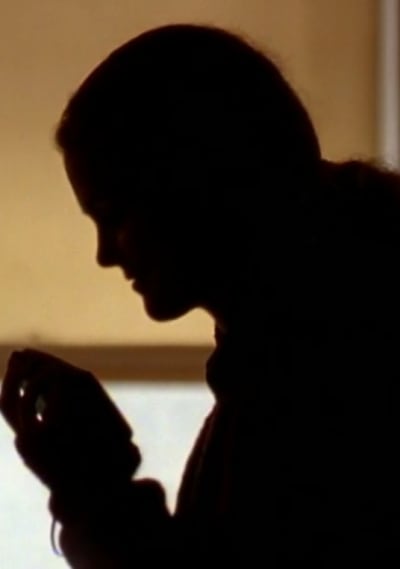
Her voiceover message to Sally is already laced with the nostalgia and regret that suits the opening scenes of Felicity at her high school graduation on the cusp of getting thrust into the real world and leaving the security of high school behind.
It’s an event that has her completely reevaluating the last four years of her life and the regrets that she has and fueled by a burst of steely resolve, she finally goes up to Ben Covington, the boy she’s been obsessed with from afar for the entire duration of her academic career.
And it’s the classic, almost kismet moment that completely changes the course of Felicity’s future. What seems miniscule to us becomes the impetus for Felicity’s journey into adulthood, and yes, it all centers around a boy.
Initially, it’s easy to conclude that Felicity is this love-struck, obsessive, naive young girl who threw away everything she knew and followed a boy who barely knew she existed across the country.
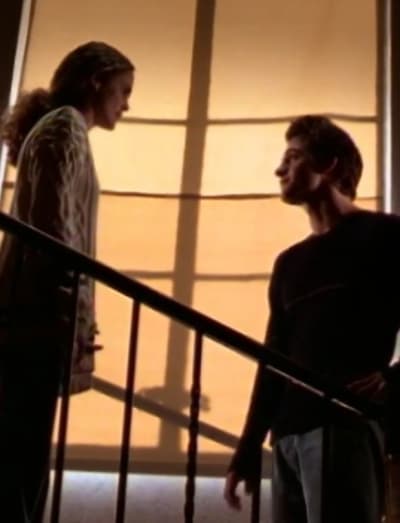
It’s the crux of the series and the pilot, and admittedly, it was difficult not to be judgmental about Felicity’s impulsive actions.
The very idea that the center of Felicity’s universe was Ben Covington and that she based one of the most important decisions of her life on the smile and yearbook message of a boy she loved but barely knew is shocking.
It’s the antithesis of feminism and everything we’ve been conditioned to be as strong-willed and minded modern-day women.
Even in 1998, the notion behind Felicity’s actions feels terribly misguided, disappointing, and embarrassing.
Her wide-eyed and hopeful expression as she descends on NYC and eventually crosses paths with Ben is enough to give you secondhand embarrassment.
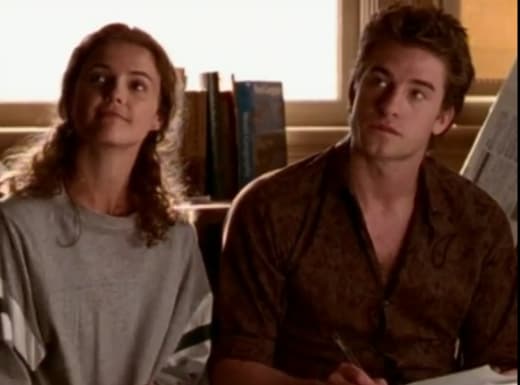
And yet, that’s quintessentially the young adult experience, making impulsive or questionable decisions that will make you cringe decades later as you wonder what you were even thinking at the time.
And the series leans into the idea that Felicity stands on the precipice between bravery and foolishness with her choice.
It’s what makes this as a starting point so compelling. We no longer allow characters to be so overtly flawed, messy, and irksome.
Now, there’s an air that characters require some level of sensibility for us to root for them, narrowing and shortchanging their journey toward growth.
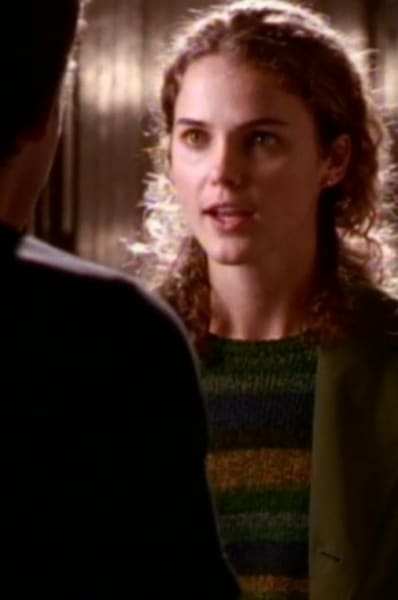
There’s an expectation for characters, particularly female ones, to have such a level of likability and insightfulness, some innate understanding of the world and themselves, without making room for true character evolution.
Felicity’s starting point is rough, and it’s difficult to accept. You watch her while gnashing your teeth and resisting the urge to cover your eyes or ears as she word vomits vulnerability in a manner that’s more social gaffe than socially acceptable.
She’s shameless, earnest, and honest, which crops up repeatedly throughout the pilot as she frequently wears her heart on her sleeve no matter how uncomfortable it is for those on the receiving end and viewers alike.
This pilot is special because you fully understand that Felicity’s journey into adulthood is a marathon, not a sprint.
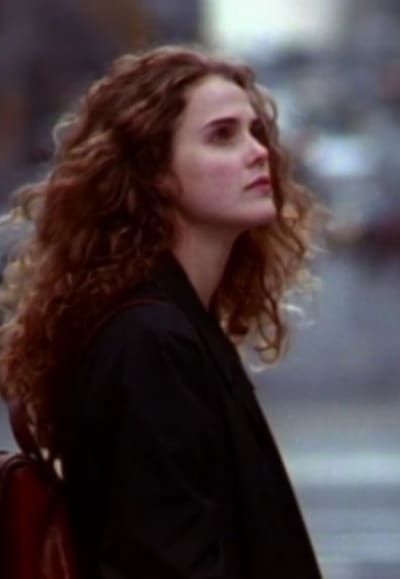
You sense the confidence in the series and the characters, a rare comfortability in knowing there will be time and space to let the story unfold at its own pace.
We don’t see that anymore.
In fact, with Felicity, it’s not once but twice that her decisions for her future are so profoundly tied to Ben Covington.
He’s the reason she’s in New York instead of at Stanford, and then, he’s the reason she ultimately stays; after some forward movement in her self-awareness, she still recites his line about seeing what the city looks like when it snows as an explanation for why she’s doubling down with her decision.
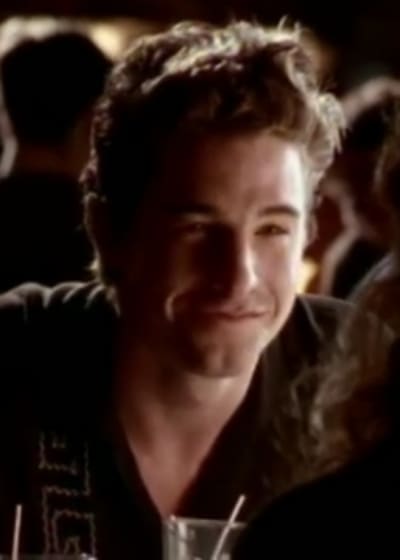
Yes, frustratingly enough, Felicity’s origin story, the first page in this new chapter in her life, is that she upended her life and everything that she knew for a boy.
But then the pilot excels at shaping and adding more context to this in a rewarding manner, proving it’s far more complex than what’s presented on the surface.
Through her conversation with her advisor, she learns that her parents believe and see her as someone who isn’t “independently-minded.” As harsh and critical as that sentiment is, it’s not inherently wrong either.
They believe this because they’ve essentially raised her to be this way. Felicity expresses that her father had her entire life mapped out for her since she was a kid.
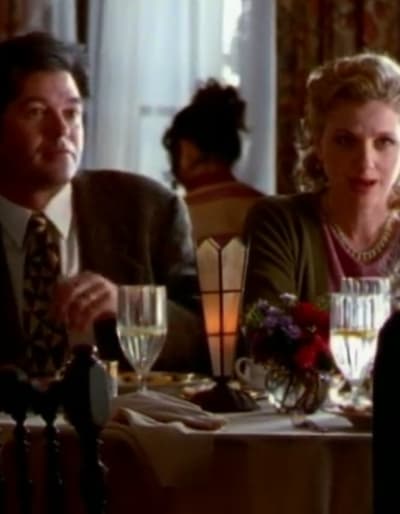
If she lacks independence and any sense of individualism, she’s spent her entire life under her parents’ thumb, weighed down by all these expectations they have of her.
The interactions with her parents provide the most insight into Felicity and thus give us that peek into how she clicks, making her a compelling albeit flawed protagonist worth rooting for in the end.
We essentially learn that we can’t quite reduce Felicity’s decision to being “about a boy.” It’s far deeper than that.
Ben Covington and his beautifully worded, vulnerable yearbook entry was a lifeline.
Dear Felicity, Here it goes. I watched you for four years, always wondered what you were like, and what was going on in your mind all that time when you were so quiet, just thinking. Drawing in your notebook. I should’ve just asked you, but I never asked you. So now, four years later, I don’t even know you. But I admire you. Well, that makes me sound crazy, but I’m okay with that. So take care of yourself. Love, Ben P.S. I would’ve said, “Keep in touch,” but unfortunately, we were never in touch.
He represented so much more than just a guy she liked that she followed across the country but rather her first opportunity to decide for herself.
Interestingly enough, in the pilot, not even Felicity seems fully cognizant of how little her choice has to do with Ben, specifically so much as the escapism that he represents.
Felicity spoke of her father’s plan for her as if she was removed from it altogether, as if it was a series of checks off of a list with this monotone detachment.
And when pressed further by anyone around, namely her advisor, it’s evident that she’s never even envisioned what her life could look like outside of this plan.
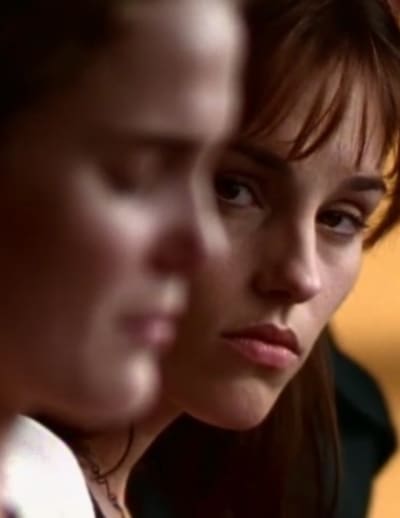
She is, in fact, susceptible to other people’s influence, obviously evident by this crucial decision that changed her life. Then, she takes a step in the right direction when faced with her parents essentially bribing her to get back on track for Stanford.
A pivotal moment is the realization that she didn’t even get into Stanford by her own merit but rather by her father’s manipulations. And thus, even her decision to even entertain sticking to the plan is stripped from her.
What’s fascinating about Felicity is that it’s not so much the initial choice she made but the ones after that that define and reaffirm her journey.
Felicity also produced one of the hallmark love triangles in television history. And the pilot lays the groundwork for four years of volleying back and forth between Ben and Noel.
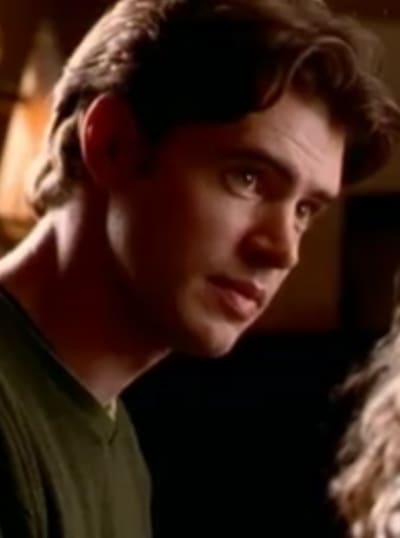
Scott Speedman is instantly charismatic as Ben, who exudes an aloofness but also a hidden depth that instantly implies that there is far more to the character than meets the eye.
By the end of the pilot, it’s evident that Ben is escaping, too. The pilot hints at some of his family issues that will unspool later throughout the series.
The argument at his graduation ceremony with his mother was subtle yet illuminating. That moment following up with Ben indulging in a rare moment of vulnerability with his message in Felicity’s yearbook makes you fall in love with him every bit as much as Felicity has.
His message is that of the popular boy with hidden depths and innate intuitiveness you wouldn’t anticipate.
He spoke as a boy who was very much aware of Felicity almost as much as she was him, who admired how stable she was in who and what she was and what she had planned for her life.
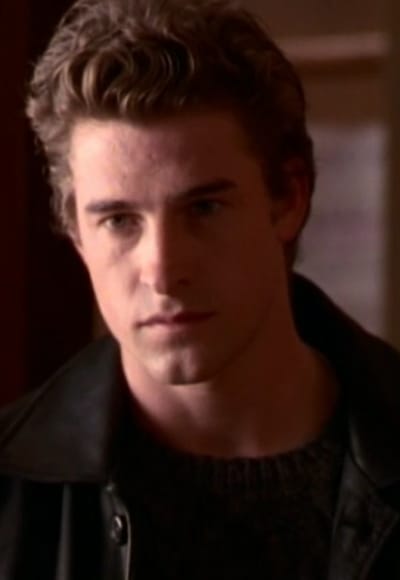
He expressed this mild curiosity in her and a longing to be understood by someone, projecting that onto her. And, as evident by their argument later, it’s apparent that he was very much aware of her affection for him and enjoyed it on some level.
You sympathize with Ben throughout the pilot, especially when he doesn’t know how to react to Felicity’s bold and awkward admission.
It was also tough to hear that she had violated his privacy by reading his admission essay and blaming him for leading her on with his message.
Ben experienced the brunt of everyone’s expectations of him and this image he felt compelled to uphold for so long, prompting him to escape to NYC, too.
And yet, while there, he had to deal with the pedestal Felicity placed him on that compelled him to do and be better. All of this sets up the crux of Ben and Felicity’s relationship, both as friends and a ship.
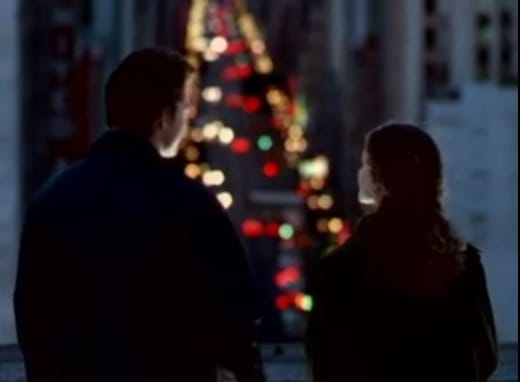
Meanwhile, Scott Foley’s Noel Crane is charming and a bit awkward and goofy, serving as a romantic foil for Ben in an endearing albeit at times obnoxious way.
The pilot quickly establishes what he has to offer to Felicity, serving as her consummate confidant in nearly any situation, a role he slipped into effortlessly and instantly.
With Noel, they immediately capture that he’s the one who will spend a significant portion of the series pining for her.
And refreshingly, the series doesn’t play subtly with this, flat out having the character express his feelings for her casually and honestly in his plea to get her to stay.
Yet despite that, he reveals it as an acknowledgment and not something he’d allow to interfere with how he conducts himself or approaches the friendship they forge.
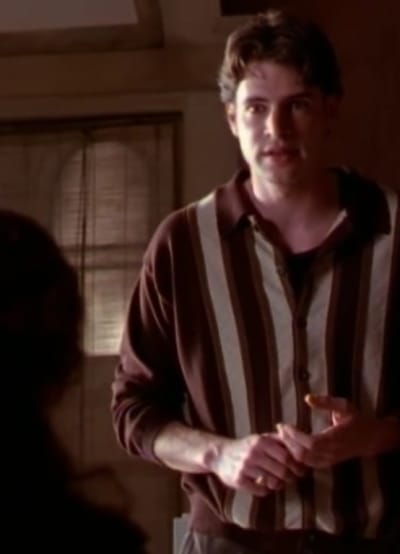
A level of shameless vulnerability to these characters feels almost foreign to what we have now. From the love triangle component to the flagrant introspection and extensive, expansive vocabulary, Felicity feels reminiscent of its WB sister series, Dawson’s Creek.
The pilot also establishes two separate love triangles involving Felicity and Ben with a refreshing maturity that suggests that even in its challenging moments, the characters’ friendships could remain intact.
Amy Jo Johnson’s Julie is Felicity’s first real friend, bonding over Julie’s sincere note in class and a joke about the professor instantly solidifying their friendship and serving as one of the pilot’s most endearing scenes.
Even with Felicity at her most jealous over Ben and her inability to be honest with Julie about her feelings for him, it never feels like her friendship with Julie is ever threatened, and Felicity’s ire doesn’t result in attacks against Julie, which is refreshing and also a rarity even presently.
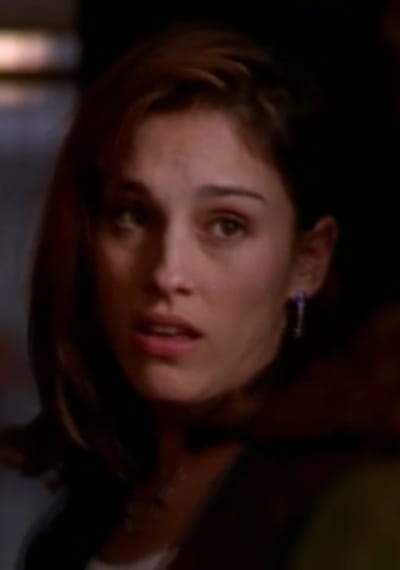
The pilot teases that we’ll have Felicity and Ben torn between two different love triangles, with Ben pursuing something with Julie despite Felicity’s interest and Noel harboring feelings for Felicity despite her interest in Ben.
But the pilot merely hints at this drama without it completely consuming the hour, making this one of the strongest pilots ever.
The series premiere of Felicity has the type of pacing that makes you nostalgic. It doesn’t rush through everything in an attempt to introduce a dozen different storylines or sell the audience on the concept before its attention wanes.
It doesn’t go out of its way to force every character into the pilot. We barely glimpse Meghan, but it’s enough to establish her eccentricities and how that clashes with Felicity’s golden retriever-earnestness.
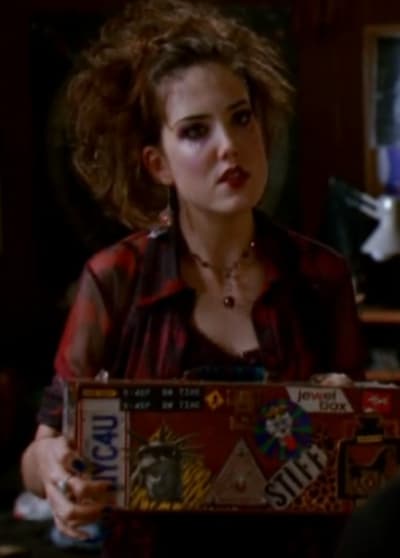
There’s no mention of Elena or Sean, both of whom make their appearances later. Yet, the premiere doesn’t suffer from this at all.
It prioritizes the introduction of Felicity Porter and slowly integrating viewers into her world so that it makes sense that we get more when that world expands.
It feels very true to form for the transition from high school to college, especially when one is many miles away from home and has to create a new life for oneself among new people.
Julie easily could have been viewed as a one-dimensional character, but the casual lines she gets and the intonation and inflection in her voice during certain scenes do the work of hinting at Julie’s background and what we’ll come to expect from the character.
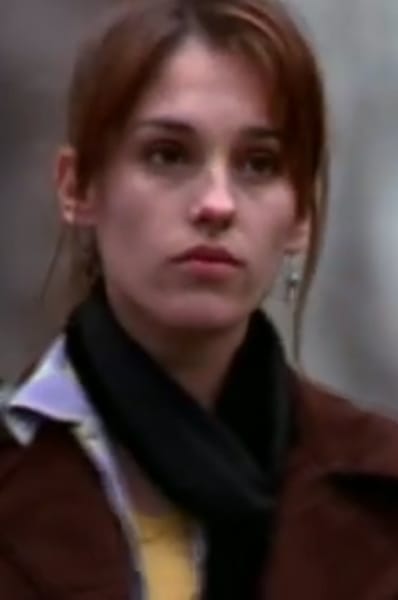
The pilot also gifts us shots of the Twin Towers, the subway, all these little things to capture the tone of NYC and that Felicity is not in Palo Alto anymore.
They fully capture the fish-out-of-water effect of a formerly sheltered girl in the Big Apple.
Some of the best shots are of that signature moment of Felicity getting out of the cab with her luggage upon arriving and again when she stares up at the sky after finally deciding to stay.
The lighting in this series is rough at times, but if they don’t get anything right, it’s constantly illuminating Keri Russell’s gorgeous mane so perfectly that she looks angelic.

It works beautifully at highlighting Felicity’s naivete, innocence, and softness.
But overall, everything comes together beautifully for this pilot. Of course, certain things don’t hold up quite as well and come across as dated because of when the series takes place, from the wardrobe, the phone options and technology or lack thereof, and other such things.
And it’s utterly implausible that someone as bright as Felicity wasn’t locked into any school, let alone an Ivy League, in June when she graduated.
It’s also completely off the wall that Felicity could somehow register for classes after deciding to attend a university in New York at the last minute.
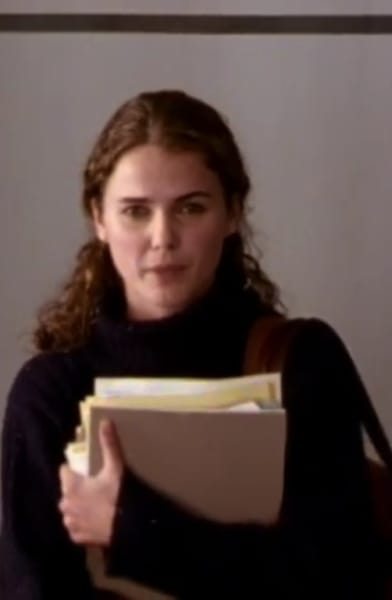
Somehow, she could secure a loan, register for various classes, and get set up with housing at the last minute.
But these are the minor things one can suspend belief for the sake of following Felicity on this journey, and it’s worthwhile.
Felicity is one of those series that still holds up as far as its exploration of the college experience and a young person embarking on a path of self-discovery as they awkwardly stumble and, at times, fumble through life.
But ironically, there’s less of an appreciation for the flaky, flighty, emotional, and irrational portrayal of a young woman these days than there was at the time.
Felicity as a series could still hold up quite well, but would Felicity as a protagonist? It’s difficult to say for sure in an age when there’s a high bar and expectation of what we want from our female characters.
It’s been such a shift from the full embrace of more traditional depictions of femininity or general acknowledgment of the female voice.
It’s especially true from a young voice, recognizing her interests, desires, and everything she holds dear is worth taking seriously, worth respecting, appreciating, or even acknowledging that it can, in fact, be significant enough to explore.
There is rarely any space anymore for the powers to take a risk on creating and pushing out a series with a protagonist like Felicity because she represents all the negative things attributed to young women due to deep-seated sexism.
But that’s what makes Felicity stand the test of time even now, all these years later.

In her awkward moments throughout the pilot, you’d want to tune in for more because she’s so painfully, embarrassingly, authentically transparent, vulnerable, and emotional.
A pilot’s job is to introduce the characters to the world they live in and entice viewers to return for more, and the Felicity pilot more than does that.
It leaves such an impression and has such an impact — the pilot that sparked a cult hit series that hasn’t been able to be duplicated since.
Pilot Grade: A-
Over to you, TV Fanatics!
Were you a huge fan of Felicity? What was your first impression of it when you first saw the pilot? If you haven’t watched the series before, has it piqued your interest now?
If you’d like to revisit the series in honor of its 25th anniversary or even tune in for the first time, you can stream all four seasons on Prime Video.
If you’d love to know what the cast has been up to, check out our Felicity Cast: Where Are They Now post.
Edit Delete
Jasmine Blu is a senior staff writer for TV Fanatic. She is an insomniac who spends late nights and early mornings binge-watching way too many shows and binge-drinking way too much tea. Her eclectic taste makes her an unpredictable viewer with an appreciation for complex characters, diverse representation, dynamic duos, compelling stories, and guilty pleasures. You’ll definitely find her obsessively live-tweeting, waxing poetic, and chatting up fellow Fanatics and readers. Follow her on X.


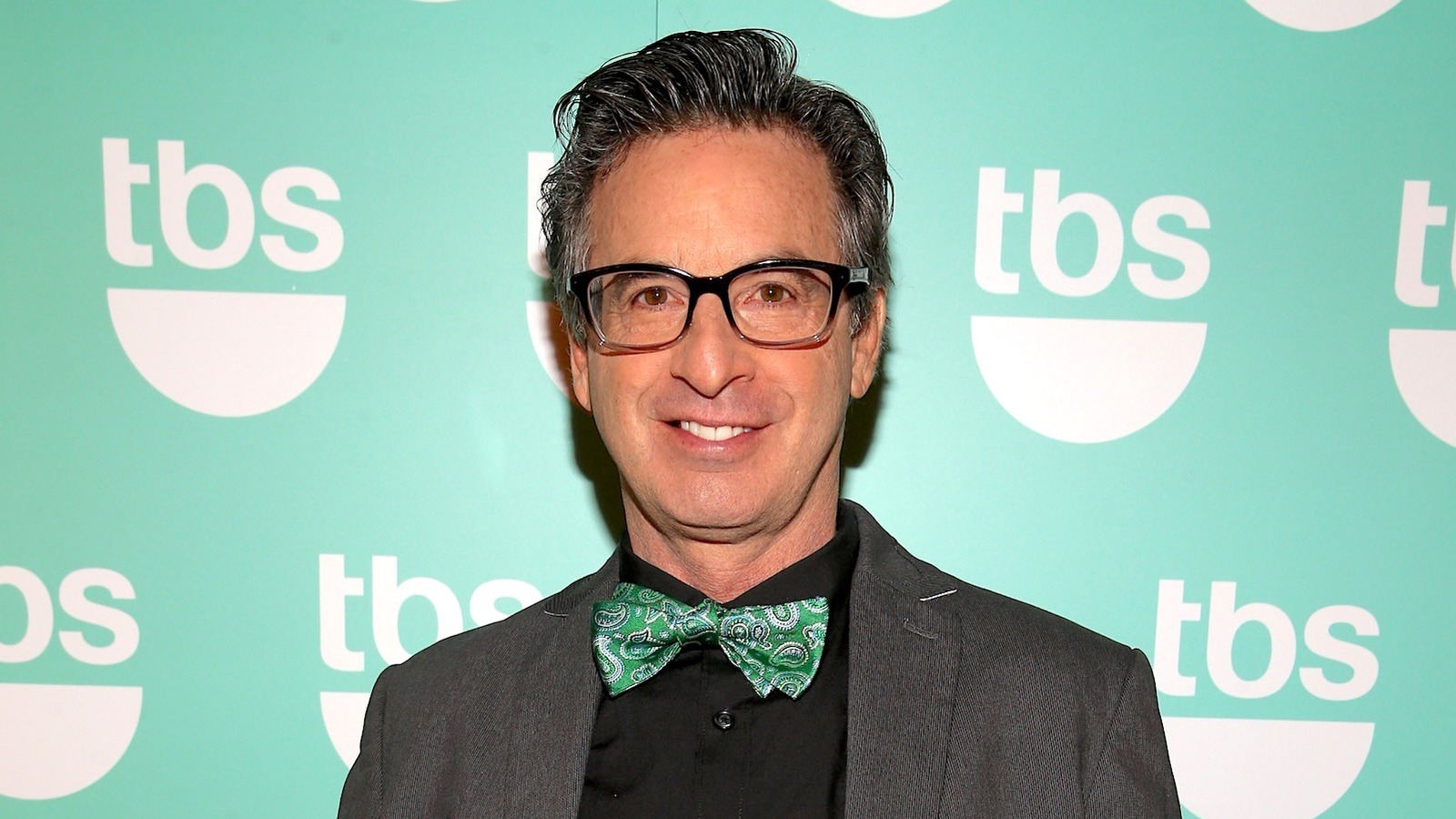

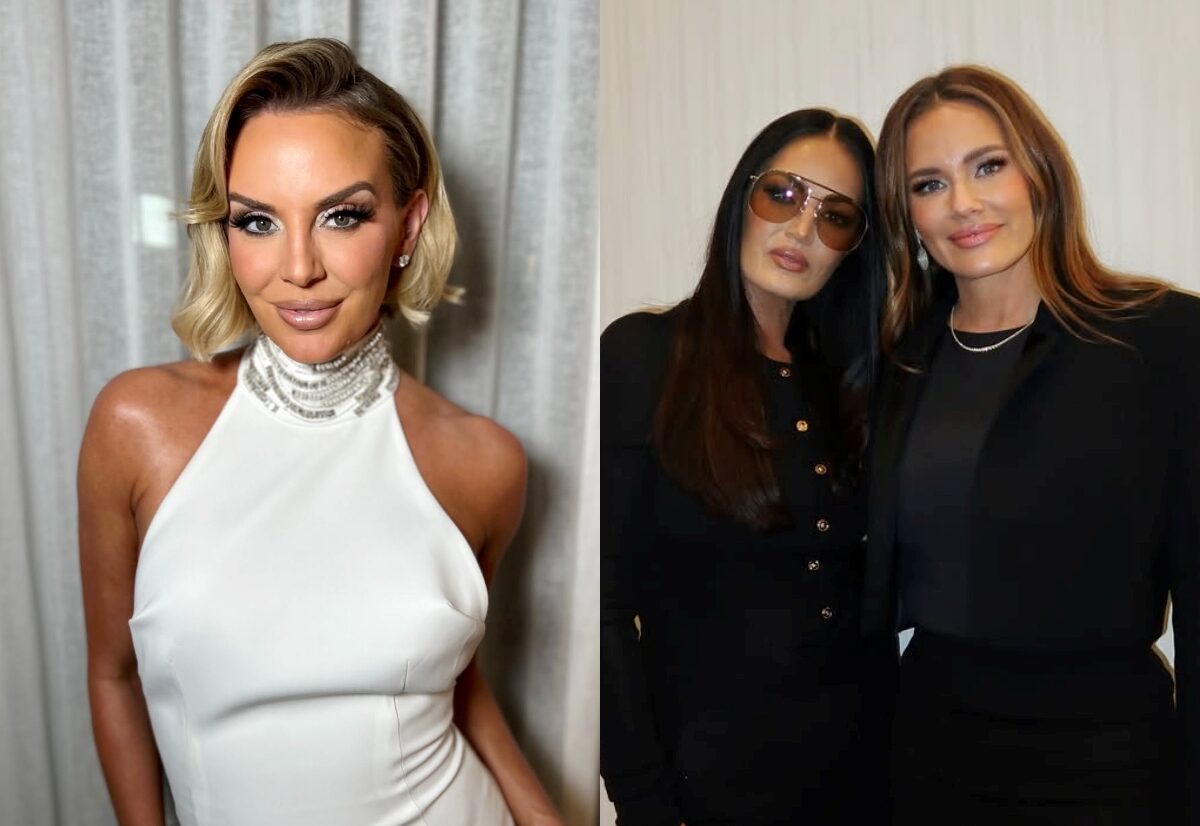

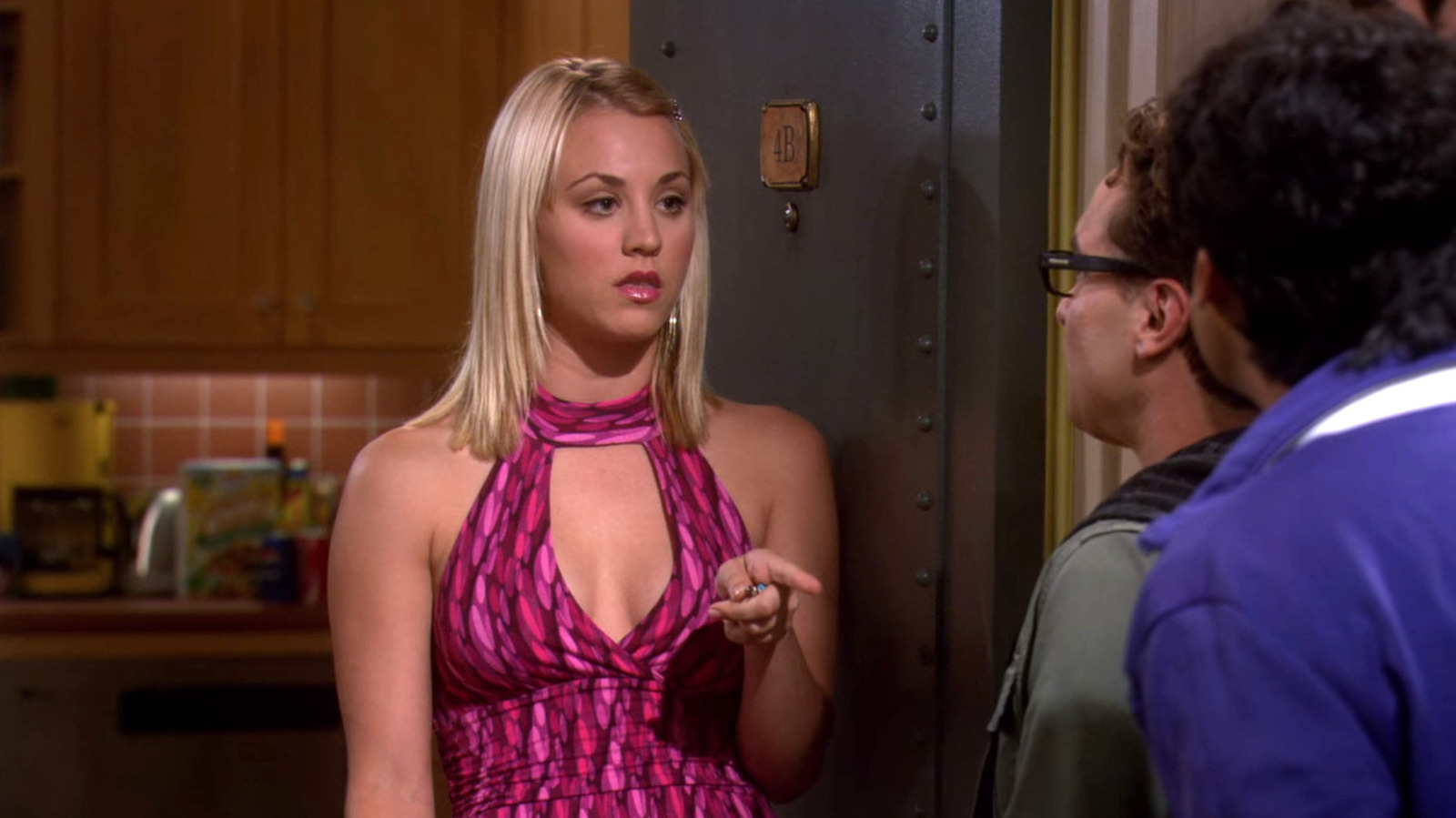
:max_bytes(150000):strip_icc():focal(731x107:733x109)/Jacky-Oh-Was-Found-Unresponsive-Prior-to-Her-Death-060623-466429d6e8e34ba49a14d53da75e8bce.jpg)